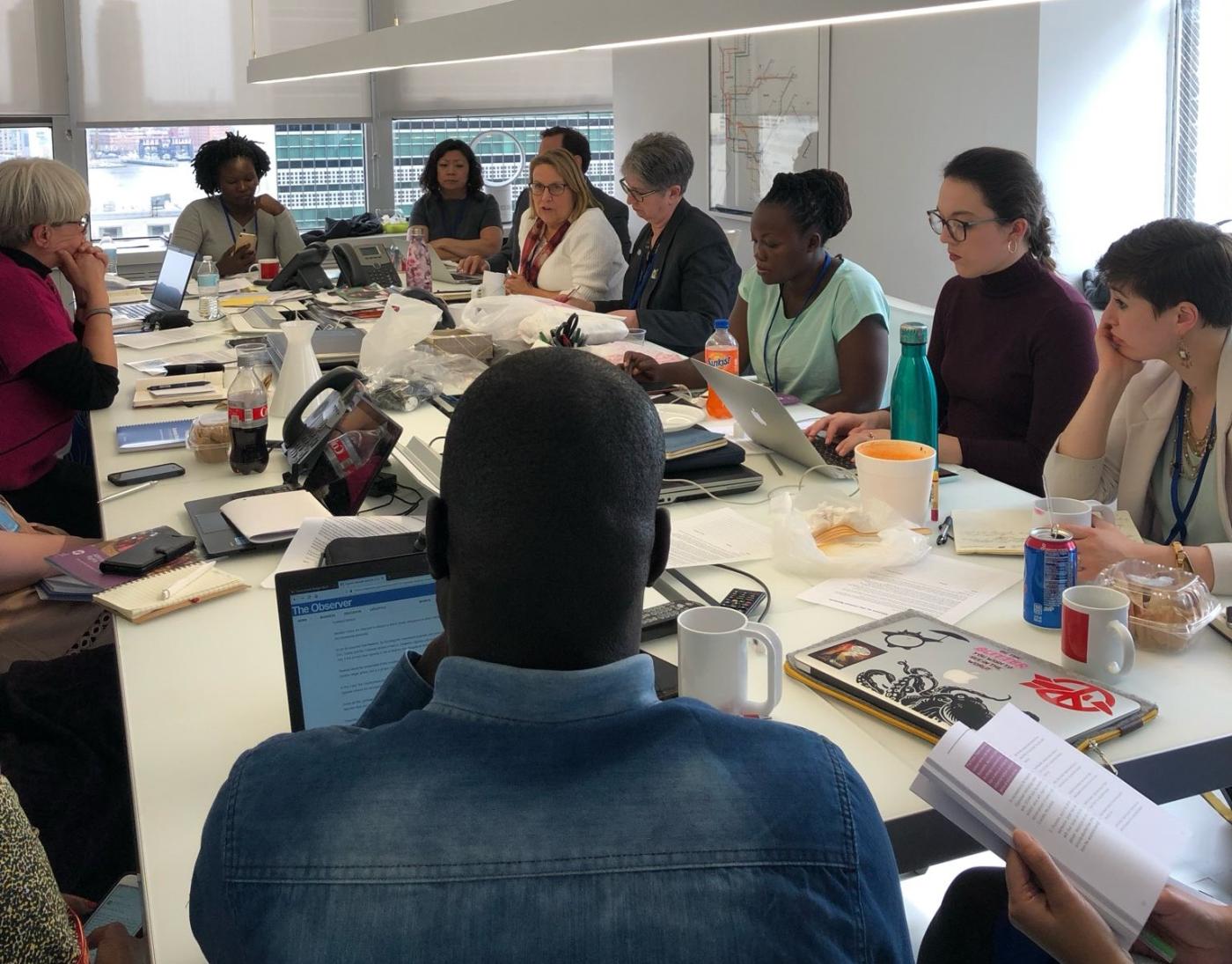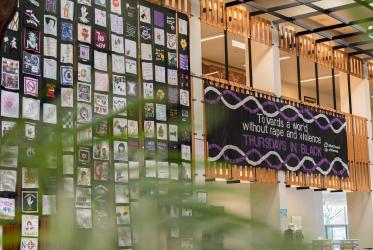World Council of Churches (WCC) representatives involved in the United Nations Commission on the Status of Women say its outcomes reflect many of the pressures affecting efforts towards gender equality globally and call for churches to be active agents for justice in the lead-up to a critical UN review in 2020.
“The outcome document of the commission, while affirming many of the principles and values to which we are most committed, is also an example of the intense pressure that gender justice is experiencing globally,” said Dr Emily Welty, vice moderator of the WCC Commission of the Churches on International Affairs. “Rather than craft new language or suggest new policies on the rights of women and girls, much of the 2019 document is merely a reiteration of the 2018 outcome document. While this at least doesn’t represent regression in our commitments to the human rights of women and girls, it also doesn’t break new ground.”
“There is increasing pressure from a few influential member nations to undermine the international standards of human rights for women and girls,” said Rev. Douglas Leonard, WCC Representative to the United Nations. “We must work together as churches to actively advance the urgent goals on the way to achieving full gender equality and justice.”
Looking next year towards the 25th anniversary of the 1995 Beijing Declaration and Platform for Action, the WCC sees strong opportunities for churches to play an active role in holding governments accountable and ensuring that real change is experienced on the ground.
Dr Isabel Apawo Phiri, WCC deputy general secretary, noted that the concerns raised at the commission included many areas with which the member churches of the WCC are currently grappling.
“This year’s theme on social protection to ensure gender justice has been a special challenge to the achievement of the very issues that lead to the founding of the Commission on the Status of Women,” Phiri said. “Requesting governments to protect women and girls’ full rights to quality education, health facilities and products, work conditions, economic and ecological conditions should not be issues that we fight about because these and many issues discussed are at the center of what it means to be just.”
The commission has named faith-based organizations as one of the stakeholders in the implementation process, indicating that faith-based organizations (including the church) have a vital role to play in ensuring that structures are established and maintained, even as governments are the official actors in the provision of access to required resources for women and girls across the world.
“It is encouraging to see that the important role of faith-based actors in providing social protection to women and girls is highlighted in the document,” said Welty. This was a critical advocacy piece for us and something that we wanted to see reflected strongly in the final document.”
Phiri agreed that the acknowledgement of the presence and contribution of faith-based organizations is a major step. “This is a big achievement which we need to develop further,” she stated, adding that efforts should continue so that “we use that space to lift up the positive faith-based gender justice voice.”
WCC representatives hope that the commission’s outcome document will be useful to church and community organizations as everyone is a stakeholder in ensuring equal access for women and men in realizing the sustainable development goals.
“The faith communities are encouraged to make their voices heard in the national reports. This is where we are expected to reach out to our member churches to participate in such discussions,” stated Phiri. “Knowing that there is not much time left to influence the national governmental reports or even organize parallel civil society reports, we have a chance to influence the regional reports. The Beijing +25 process will open in October 2019 and end in January 2020. We now have a chance to mobilize our churches to participate in the regional discussions.”








